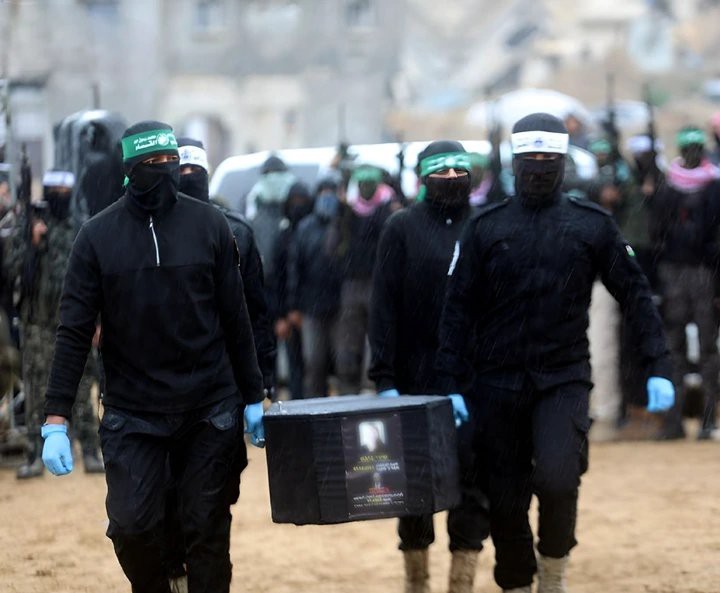A senior Palestinian official has revealed that Hamas is ready to release all remaining hostages if Israel agrees to a full and immediate end to the ongoing war in Gaza.
This revelation, reported by the Times of Israel, marks a significant shift in the hostage negotiations, which have been deadlocked for months.
Diaspora Digital Media (DDM) confirms that the unnamed official involved in the talks shared this information under the condition of anonymity, suggesting a possible opening for a breakthrough in the prolonged conflict.
According to the official, Hamas is currently engaging in negotiations based on a phased ceasefire proposal.
However, the group is willing to abandon that approach entirely if the Israeli government agrees upfront to a permanent cessation of hostilities.
“All of this talk about the phases is because of Netanyahu,” the official said, referring to Israeli Prime Minister Benjamin Netanyahu’s reported resistance to an outright commitment to ending the war.
The official emphasized that Hamas is not seeking to prolong the conflict or stretch out the negotiations.
Instead, the group prefers a comprehensive agreement that would immediately end the war and lead to the return of all Israeli hostages.
“Hamas is prepared to return all of the hostages now if Netanyahu agrees to end the war,” the source stated unequivocally.
The comments come at a critical time in the conflict, as international mediators from the United States, Egypt, and Qatar continue to push for a negotiated resolution.
Efforts have intensified in recent weeks to reach a deal that includes the release of hostages held by Hamas, in exchange for Palestinian prisoners held by Israel and a pause in military operations.
So far, prior ceasefire agreements have involved temporary truces and partial hostage exchanges.
But Hamas has repeatedly communicated its preference for a one-time, all-inclusive settlement.
The group has framed the hostages not only as bargaining chips but also as a means to secure broader political goals, including an Israeli withdrawal from Gaza and an end to air and ground attacks.
Israel, for its part, has shown some willingness to agree to temporary ceasefires.
However, it has so far refused to commit to a full cessation of hostilities or a long-term withdrawal, citing national security and the need to neutralize Hamas’s military capabilities.
This ongoing divergence has created an impasse in negotiations.
The Israeli leadership is concerned that agreeing to a permanent ceasefire could embolden Hamas and undermine its deterrent posture.
Meanwhile, Hamas views the war’s end as essential to its survival and to the reconstruction of the Gaza Strip.
The senior official’s remarks indicate that Hamas believes the Israeli prime minister is personally responsible for stalling negotiations by refusing to commit to a full end to the war.
Netanyahu has consistently prioritized Israel’s security strategy, which includes weakening or eliminating Hamas’s presence in Gaza.
Despite the stalemate, diplomats remain hopeful that ongoing discussions may yield incremental progress.
Some believe that a phased agreement could still be built out into a longer-term truce, with both sides taking calculated steps toward de-escalation.
However, others fear that entrenched political positions, both in Tel Aviv and Gaza, could doom the process.
In the meantime, families of the Israeli hostages continue to voice frustration and grief over the stalemate.
Many have begun pressing their government for more transparency and a stronger push toward a deal that would secure the safe return of their loved ones.
International observers are also growing increasingly concerned.
Humanitarian organizations have reported worsening conditions in Gaza, with thousands of civilians displaced, injured, or killed in the crossfire.
The United Nations has repeatedly called for a sustained ceasefire, but such efforts have thus far failed to produce lasting results.
The Palestinian official’s latest statement suggests a potential turning point, if Israel is willing to make a definitive choice.
But with both parties entrenched in opposing views, the likelihood of a quick resolution remains uncertain.
As pressure mounts on all sides, the world waits to see whether diplomacy will succeed in ending the suffering and violence in the region.







